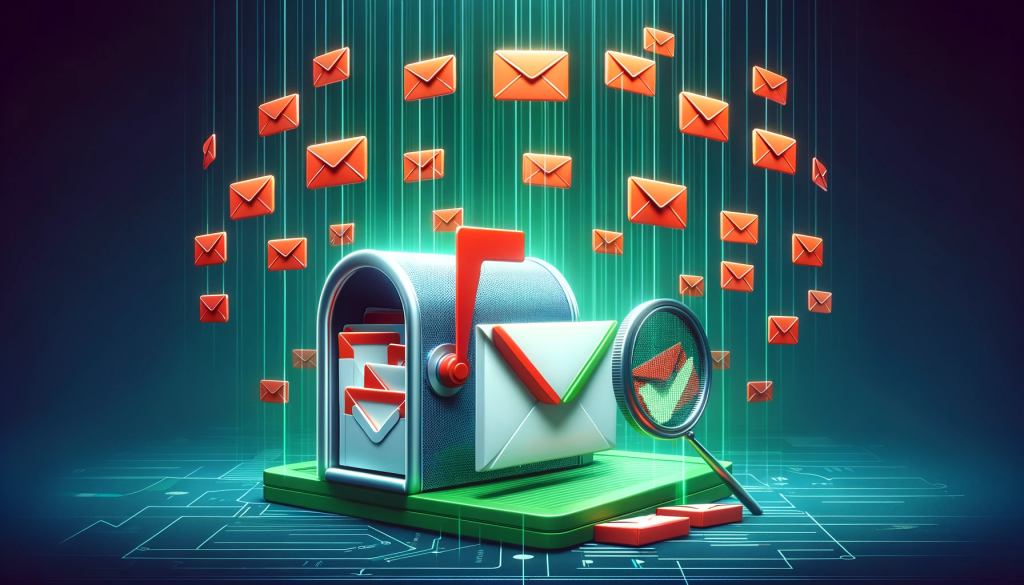
Enhancing Email Security: The Crucial Role of SPF and DMARC Records
In today’s digital age, email communication is pivotal in both personal and business interactions. However, the prevalence of cyber threats and phishing attacks has made it imperative for individuals and organizations to take proactive measures to secure their email systems. Two essential components are Sender Policy Framework (SPF) and Domain-based Message Authentication, Reporting, and Conformance (DMARC) records. In this article, we will delve into the importance of SPF and DMARC records and how they bolster email security.
Understanding SPF Records
Sender Policy Framework (SPF) is a critical email authentication method designed to prevent email spoofing and phishing attacks. SPF works by allowing domain owners to specify which mail servers are authorized to send emails on behalf of their domain. This is achieved by publishing an SPF record in the Domain Name System (DNS), outlining the approved mail servers.
Without an SPF record, malicious actors can easily forge the sender’s address in emails, leading to phishing attempts and email scams. By implementing SPF, organizations can significantly reduce the likelihood of their domain being exploited for fraudulent activities.
To set up an SPF record, administrators need to define the authorized mail servers within the DNS. This information is then checked by receiving mail servers to verify the legitimacy of incoming emails. Any email originating from an unauthorized server can be flagged or rejected, providing an additional layer of security against phishing.
The Role of DMARC Records
While SPF helps authenticate the source of an email, DMARC takes it a step further by providing additional mechanisms for email authentication and reporting. DMARC builds upon SPF and DomainKeys Identified Mail (DKIM) to enhance email security.
DMARC allows domain owners to specify policies for incoming emails, indicating whether they should be accepted, rejected, or flagged for further review. Additionally, DMARC enables domain owners to receive reports on email activity, providing insights into authentication failures and potential phishing attempts.
The integration of DMARC helps organizations in multiple ways. It not only strengthens email security by preventing unauthorized use of their domain but also allows them to gain visibility into the email landscape. By receiving detailed reports, administrators can identify and address issues promptly, ensuring a robust defense against email-based threats.
Industry Insights: The Need for SPF and DMARC
Recent research reveals that a significant number of public companies are unprepared for the new DMARC email security rules. As cyber threats continue to evolve, it becomes imperative for organizations to prioritize email security measures. The implementation of SPF and DMARC records is a fundamental step in safeguarding against phishing attacks and email fraud.
Cloudflare’s comprehensive guide on email security (link: Cloudflare Email Security Guide) provides valuable insights into the importance of SPF and DMARC records. The guide emphasizes the need for organizations to adopt these protocols to protect their brand reputation and ensure the integrity of their email communications.
Additionally, Google’s enforcement of new email rules signals a broader industry shift towards prioritizing email security (Search Engine Journal). Organizations that fail to adhere to these evolving standards may find themselves vulnerable to cyber threats and reputational damage.
Conclusion
In conclusion, the implementation of SPF and DMARC records is not just a best practice but a necessity in today’s cybersecurity landscape. As email continues to be a primary communication channel, securing it against phishing attacks and unauthorized use is paramount. Organizations must take proactive steps to deploy SPF and DMARC records, thereby fortifying their email infrastructure and safeguarding sensitive information.
By embracing these email authentication protocols, businesses and individuals can contribute to building a more secure and trustworthy online environment. The evolving threat landscape requires a proactive approach, and SPF and DMARC records are invaluable tools in the ongoing battle against cyber threats in the realm of email communication.
